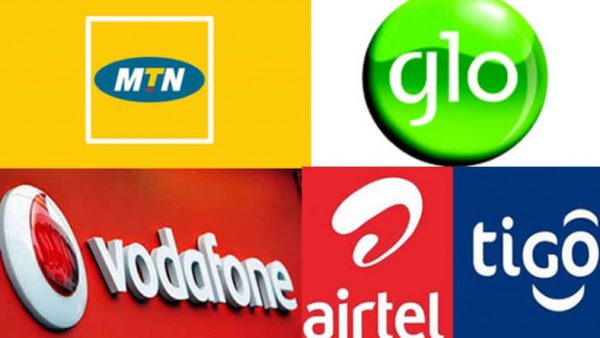The government has announced plans to break MTN’s ‘near monopoly’ in the country’s telecommunications space.
The Ministry of Communications in a statement said MTN’s 75% market share represented “glaring disparities” and unhealthy competition.
Three other telcos, AirtelTigo, Vodafone and Glo, to scrabble over 25%. They have been no match for MTN and the gulf has been widening even more over the past three years, a press statement suggested.
Currently, MTN has a 75% share of the voice market and 65% of data.
The Communications Ministry said it would be using the Electronic Communications (EC) Act 2008 and the National Telecommunications Policy to address the “imbalances”.
The Ministry explained that per the National Communication Policy, any operator with more than 40% market share in voice, data, SMS and value-added services like Mobile Money, is considered a Significant Market Power (SMP).
This designation means the government is bound to take steps to “corrective measures under the law to facilitate more market competition.”
Sector imbalance
The government expressed fears that “this imbalance potentially exposes the country to the dictates of the dominant operator and negatively impacts on competition and choice for the consumer as well as investments within the sector”
The statement revealed it had met with the telcos to discuss the “uncompetitive and unprofitable environment for less dominant players in these industries”.
The Communications Ministry has, therefore, issued at least six directives, which are part of “specific policies to ensure a level-playing field for all network operators.”
“These measures kick in immediately and the NCA is expected to work with all Network Operators who must cooperate to ensure it is done painlessly.”
The ministry suggested in its press statement that consumers should expect “proper pricing” of MTN services after the implementation of the measures.

The Ministry said the move should not be seen as a punishment, but a correction. The statement indicated that it was not singling out MTN, explaining all other operators which were once dominant in the past had their wings clipped.
South African-based company, Scancom Ltd (MTN Ghana), was incorporated in 1994 as a private limited liability company.
In 2016, MTN became a public company listing on the Ghana Stock Exchange (GSE) in September 2018. It is the largest company on the GSE by a number of Ghanaian shareholders, with 127,826 shareholders representing a value of Gh¢444 million.
In a testament to MTN’s stranglehold of the sector, MTN Ghana in 2018 won 40 awards including the prestigious Company of the Year 2017 by GIPC’s Ghana Club 100 Awards.
MTN is the only Ghanaian company to win the UK-based Investor in People Accreditation–Gold Employer of the year award.
For the past five years, the Ghana Revenue Authority has given MTN, great compliments and awards for being the largest taxpayer in the Large Tax Payer Category in the country. MTN Ghana has over the past five years contributed an average of approximately 3% of the total tax revenue in Ghana.
MTN Ghana recorded GH¢1 billion in profit for 2019 after tax. This represents a 33.56 percent higher profit compared to the figure earlier recorded in 2018.
But complaints about the cost of data, vanishing bundles have plagued the company.
In January 2020, subscribers lamented for days after MTN said its undersea cable in Europe had been cut, causing significant disruption in its services.

[…] Read also: Gov’t set to break MTN’s ‘monopoly’ […]